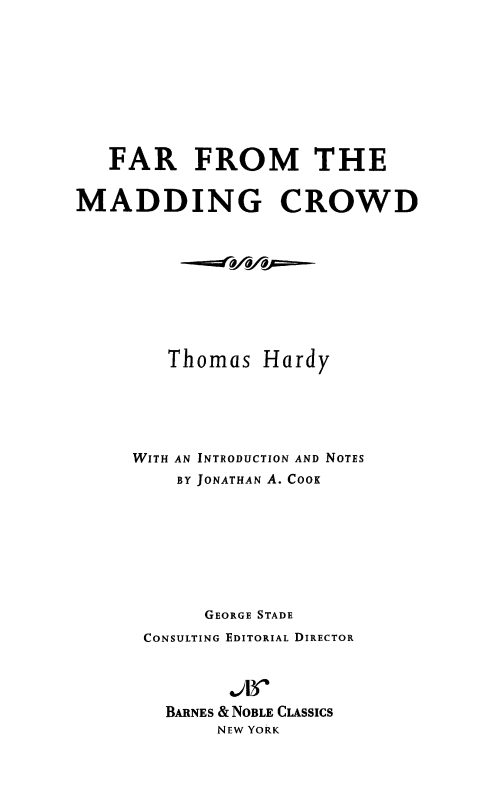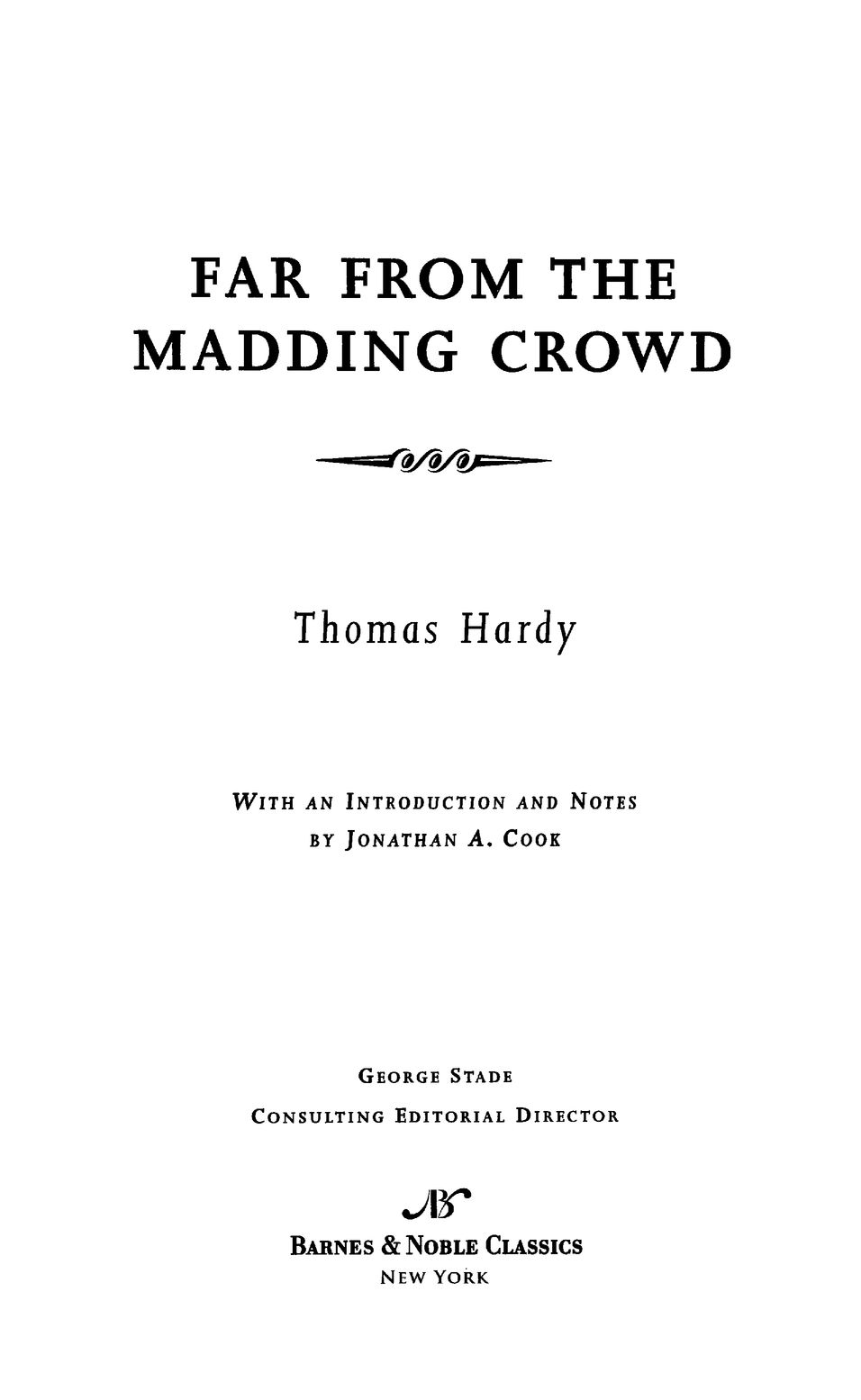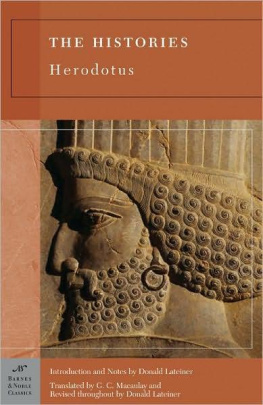
Table of Contents
FROM THE PAGES OF
FAR FROM THE MADDING CROWD
His Christian name was Gabriel, and on working days he was a young man of sound judgment, easy motions, proper dress, and general good character. (page 11)
He had just reached the time of life at which young is ceasing to be the prefix of man in speaking of one. He was at the brightest period of masculine growth, for his intellect and his emotions were clearly separated: he had passed the time during which the influence of youth indiscriminately mingles them in the character of impulse, and he had not yet arrived at the stage wherein they become united again, in the character of prejudice, by the influence of a wife and family. In short, he was twenty-eight, and a bachelor. (page 13)
The only superiority in women that is tolerable to the rival sex is, as a rule, that of the unconscious kind; but a superiority which recognizes itself may sometimes please by suggesting possibilities of capture to the subordinated man. (page 33)
It may have been observed that there is no regular path for getting out of love as there is for getting in. Some people look upon marriage as a short cut that way, but it has been known to fail. (page 42)
It is safer to accept any chance that offers itself, and extemporize a procedure to fit it, than to get a good plan matured, and wait for a chance of using it. (pages 48-49)
Ah, hes his grandfers own grandson!his grandfer were just such a nice unparticular man! (page 64)
She resolved never again, by look or by sign, to interrupt the steady flow of this mans life. But a resolution to avoid an evil is seldom framed till the evil is so far advanced as to make avoidance impossible. (page 132)
It appears that ordinary men take wives because possession is not possible without marriage, and that ordinary women accept husbands because marriage is not possible without possession; with totally differing aims the method is the same on both sides. But the understood incentive on the womans part was wanting here. Besides, Bathshebas position as absolute mistress of a farm and house was a novel one, and the novelty had not yet begun to wear off.
(page 139)
What difference does it make whose sweetheart she is, since she cant be yours? (page 236)
There are considerations even before my consideration for you; reparations to be madeties you know nothing of. If you repent of marrying, so do I. (page 285)
It is difficult for a woman to define her feelings in language which is chiefly made by men to express theirs. (page 364)
Theirs was that substantial affection which arises (if any arises at all) when the two who are thrown together begin first by knowing the rougher sides of each others character, and not the best till further on, the romance growing up in the interstices of a mass of hard prosaic reality. This good-fellowshipcamaraderieusually occurring through similarity of pursuits, is unfortunately seldom superadded to love between the sexes, because men and women associate, not in their labours, but in their pleasures merely. Where, however, happy circumstance permits its development, the compounded feeling proves itself to be the only love which is strong as deaththat love which many waters cannot quench, nor the floods drown, beside which the passion usually called by the name is evanescent as steam. (page 409)

THOMAS HARDY
Thomas Hardy was born on June 2, 1840, in the village of Higher Bockhampton, near Dorchester, a market town in the county of Dorset. Hardy would spend much of his life in his native region, transforming its rural landscapes into his fictional Wessex. Hardys mother, Jemima, inspired him with a taste for literature, while his stonemason father, Thomas, shared with him a love of architecture and music (the two would later play the fiddle at local dances). As a boy Hardy read widely in the popular fiction of the day, including the novels of Scott, Dumas, Dickens, W Harrison Ainsworth, and G. P. R. James, and in the poetry of Scott, Wordsworth, Byron, Shelley, Keats, and others. Strongly influenced in his youth by the Bible and the liturgy of the Anglican Church, Hardy later contemplated a career in the ministry; but his assimilation of the new theories of Darwinian evolutionism eventually made him an agnostic and a severe critic of the limitations of traditional religion.
Although Hardy was a gifted student at the local schools he attended as a boy for eight years, his lower-class social origins limited his further educational opportunities. At sixteen he was apprenticed to architect James Hicks in Dorchester and began an architectural career primarily focused on the restoration of churches. In Dorchester Hardy was also befriended by Horace Moule, eight years Hardys senior, who acted as an intellectual mentor and literary adviser throughout his youth and early adulthood. From 1862 to 1867 Hardy worked in London for the distinguished architect Arthur Blomfield, but he continued to studyliterature, art, philosophy, science, history, the classicsand to write, first poetry and then fiction.
In the early 1870s Hardys first two published novels, Desperate Remedies and Under the Greenwood Tree, appeared to little acclaim or sales. With his third novel, A Pair of Blue Eyes, he began the practice of serializing his fiction in magazines prior to book publication, a method that he would utilize throughout his career as a novelist. In 1874, the year of his marriage to Emma Gifford of St. Juliot, Cornwall, Hardy enjoyed his first significant commercial and critical success with the book publication of Far from the Madding Crowd after its serialization in the Cornhill Magazine. Hardy and his wife lived in several locations in London, Dorset, and Somerset before settling in South London for three years in 1878. During the late 1870s and early 1880s Hardy published The Return of the Native, The Trumpet-Major, A Laodicean, and Two on a Tower while consolidating his place as a leading contemporary English novelist. He would also eventually produce four volumes of short stories: Wessex Tales, A Group of Noble Dames, Lifes Little Ironies, and A Changed Man.
In 1883 Hardy and his wife moved back to Dorchester, where Hardy wrote The Mayor of Casterbridge, set in a fictionalized version of Dorchester, and went on to design and construct a permanent home for himself, named Max Gate, completed in 1885. In the later 1880s and early 1890s Hardy wrote three of his greatest novels, The Woodlanders, Tess of the dUrbervilles, and Jude the Obscure, all of them notable for their remarkable tragic power. The latter two were initially published as magazine serials in which Hardy removed potentially objectionable moral and religious content, only to restore it in when the novels were published in book form; both novels nevertheless aroused public controversy for their criticisms of Victorian sexual and religious mores. In particular, the appearance of Jude the Obscure in 1895 precipitated harsh attacks on Hardys alleged pessimism and immorality; the attacks contributed to his decision. to abandon the writing of fiction after the appearance of his last-published novel, The Well-Beloved.
In the later 1890s Hardy returned to the writing of poetry that he had abandoned for fiction thirty years earlier. Wessex Poems appeared in 1898, followed by several volumes of poetry at regular intervals over the next three decades. Between 1904 and 1908 Hardy published a three-part epic verse drama, The Dynasts, based on the Napoleonic Wars of the early nineteenth century. Following the death of his first wife in 1912, Hardy married his literary secretary Florence Dugdale in 1914. Hardy received a variety of public honors in the last two decades of his life and continued to publish poems until his death at Max Gate on January 11, 1928. His ashes were interred in the Poets Corner of Westminster Abbey in London and his heart in Stinsford outside Dorchester. Regarded as one of Englands greatest authors of both fiction and poetry, Hardy has inspired such notable twentieth-century writers as Marcel Proust, John Cowper Powys, D. H. Lawrence, Theodore Dreiser, and John Fowles.
Next page







